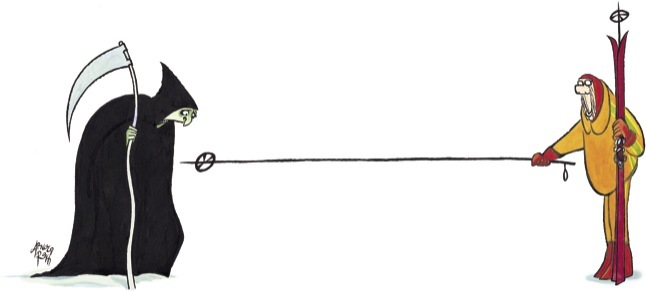Bioethicist & oncologist Dr. Ezekiel Emanuel is perhaps most well-known for his essay ‘Why I Hope to Die at 75’. Why are humans fascinated with long life?
Dr. Ezekiel Emanuel is a well-known figure for numerous reasons.
He’s a heralded bioethicist & oncologist who advised President Obama on health care, has two equally popular brothers, and wrote an article in 2014 – “Why I Hope to Die at 75” – that’s still talked about today.
That article resulted in thousands of letters and emails to Emanuel, from the snarky ones calling him insane and ungrateful, to thanks and appreciation for being a voice of reason. A 75-year-old man that died in upstate New York even requested that mourners, rather than making a donation, should instead read Emanuel’s article.
His embrace of ending life ‘early’ – though it’s just a few years shy of the U.S. life expectancy of 78.8 – is counter-intuitive to how most people feel about mortality. In a survey from the Pew Research Center, nearly 70% of American adults say they’d like to hit the century mark – 100 years old.
But why?

“The quest to live forever, or to live for great expanses of time, has always been part of the human spirit,” says Paul Root Wolpe, director of the Emory Center for Ethics.
People are more optimistic than ever when it comes to living long, thanks to advances in science and medicine that push life expectancy, as well as Silicon Valley-types that’re investigating how to extend life by decades.
Related: Eating Spicy Food Linked to a Longer Life
But when it comes down to it, people want to live longer beyond their pioneering spirits.
 “The thing that is most difficult and inscrutable to us as mortal beings is the fact of our own death,” Wolpe says. “We don’t understand it, we don’t get it, and as meaning-laden beings, we can’t fathom what it means to not exist.”
“The thing that is most difficult and inscrutable to us as mortal beings is the fact of our own death,” Wolpe says. “We don’t understand it, we don’t get it, and as meaning-laden beings, we can’t fathom what it means to not exist.”
Emanuel’s essay argues that most people complete their most meaningful years of their life before age 75. So living beyond that is rarely beneficial; physical condition rapidly deteriorates for roughly half of Americans once they’re around 80. Aging in general makes us slower, and less creative – we may die later than ever, but we age at the same rate.
“What you see when you actually look at people at the end of life, to a large degree, is a sense of a life well lived and a time for that life to transition itself,” says Wolpe. “Younger people have a harder time with that, but older people don’t.”
A study of young & middle-aged people aged 18-64 claims 1 out of 6 people preferred to die before 80 years old. Those that did also held more negative beliefs about old age life. Still, that’s a strong majority that wanted to live to old age, with a more optimistic view of life in their elder years.
Related: 4 Foods That Will Help You Age with Grace
And that’s why Emanuel isn’t persuading or pushing his unique ideology, preventing people from continuing the quest for longer life. Evidence is no match for human ego.
“One of the things I don’t understand is why the Silicon Valley types want to live forever,” Emanuel says. “Obviously they believe the world can’t possibly survive without their existence, and so they think their immortality is so critical to the survival of the world.”
But, there is a way to keep pushing towards the goal of extended life longevity that may be acceptable to everyone.
“The proportion of the population that dies before 75, that’s the number we ought to be looking at and tracking,” Emanuel suggested. “We want to get everyone to 75.”
Photo credit: goodluz/Shutterstock











